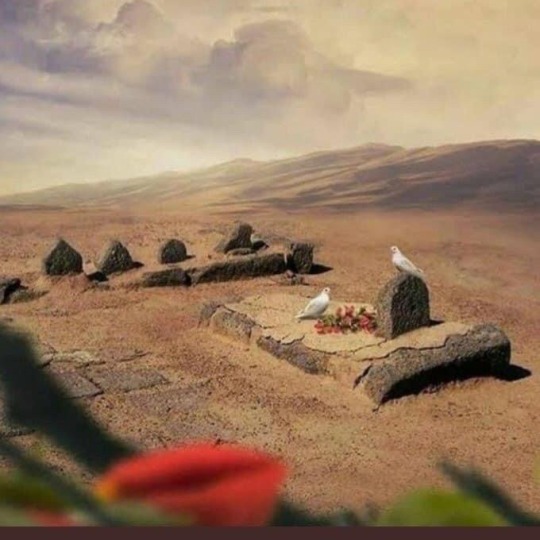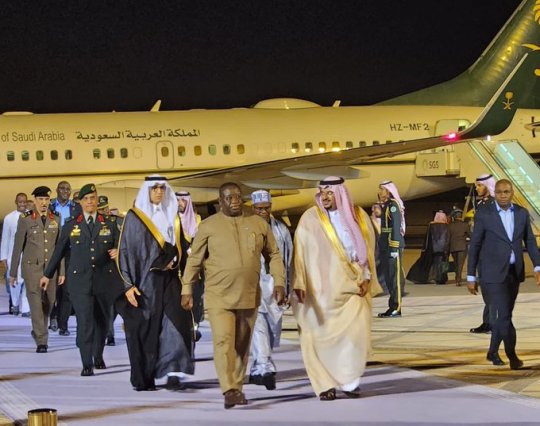#muhammad al-saud
Text












Author's note: Reference is made to the following scenes: (1), (2), (3)
#ts3#sims 3#sims 3 story#sims stories#tteot story#laurie golzine#omar ayad#muhammad al-saud#i'm sorry for going into details#i hate doing that#look i work in investment but imposter syndrome is kicking me hard#plus it's kind of difficult to make a plot look seamless when there is so much time between updates#in summary: laurie is managing a conglomerate including an investment fund of which noah is a partner#so laurie is a shareholder of a small tech company through that fund#he sold the antivirus via noah to that company as a solution to the virus he developed himself#when the stock market got hacked (by laurie) all companies rushed to get an anti-virus#but it also contained a spyware (also by laurie)#and this is how laurie's main business is now stealing data#laurie arc
68 notes
·
View notes
Text
The social media company formerly known as Twitter has been accused in a revised civil US lawsuit of helping Saudi Arabia commit grave human rights abuses against its users, including by disclosing confidential user data at the request of Saudi authorities at a much higher rate than it has for the US, UK or Canada.
The lawsuit was brought last May against X, as Twitter is now known, by Areej al-Sadhan, the sister of a Saudi aid worker who was forcibly disappeared and then later sentenced to 20 years in jail.
It centers on the events surrounding the infiltration of the California company by three Saudi agents, two of whom were posing as Twitter employees in 2014 and 2015, which ultimately led to the arrest of al-Sadhan’s brother, Abdulrahman, and the exposure of the identity of thousands of anonymous Twitter users, some of whom were later reportedly detained and tortured as part of the government’s crackdown on dissent.
Lawyers for Al-Sadhan updated their claim last week to include new allegations about how Twitter, under the leadership of then chief executive Jack Dorsey, willfully ignored or had knowledge of the Saudi government’s campaign to ferret out critics but – because of financial considerations and efforts to keep close ties to the Saudi government, a top investor in the company – provided assistance to the kingdom.
The new lawsuit details how X had originally been seen seen as a critical vehicle for democratic movements during the Arab spring, and therefore became a source of concern for the Saudi government as early as 2013.
The new legal filing comes days after Human Rights Watch condemned a Saudi court for sentencing a man to death based solely on his Twitter and YouTube activity, which it called an “escalation” of the government’s crackdown on freedom of expression.
The convicted man, Muhammad al-Ghamdi, 54, is the brother of a Saudi scholar and government critic living in exile in the UK. Saudi court records examined by HRW showed that al-Ghamdi was accused of having two accounts, which had a total of 10 followers combined. Both accounts had fewer than 1,000 tweets combined, and contained retweets of well-known critics of the government.
The Saudi crackdown can be traced back to December 2014, as Ahmad Abouammo – who was later convicted in the US for secretly acting as a Saudi agent and lying to the FBI – began accessing and sending confidential user data to Saudi Arabian officials. In the new lawsuit, it is claimed that he sent a message to Saud al-Qahtani, a close aide to Mohammed bin Salman, via the social media company’s messaging system, saying “proactively and reactively we will delete evil, my brother”. It was a reference, the lawsuit claims, to the identification and harming of perceived Saudi dissidents who were using the platform. Al-Qahtani was later accused by the US of being a mastermind behind the murder of the journalist Jamal Khashoggi in 2018.
“Twitter was either aware of this message – brazenly sent on its own platform – or was deliberately ignorant to it,” the revised lawsuit states.
Twitter, now X, does not respond to questions from the press.
The Guardian contacted the company lawyer in the case, Ben Berkowitz of Keker, Van Nest & Peters, but did not receive a response. The Guardian also contacted Dorsey’s new company, Block, Inc, to request a comment from the former Twitter chief executive, but did not receive a response.
After Abouammo resigned in May 2015, he continued to contact Twitter to field requests he was receiving from Bader al-Asaker, a senior aide of Mohammed bin Salman, for the identity of confidential users. He made clear to the company, the lawsuit alleges, that the requests were on behalf of his “old partners in the Saudi government”.
The lawsuit also alleges that Twitter had “ample notice” of security risks to internal personal data, and that there was a threat of insiders illegally accessing it, based on public reporting at the time.
Twitter “did not simply ignore all these red flags … it was aware of the malign campaign”, the lawsuit claims.
On 28 September 2015, Twitter received a complaint from a Saudi user that their accounts had been compromised. But, the lawsuit alleges, the company did not act to bar one of the Saudis who was later accused – Ali Hamad Alzabarah – from having access to confidential user data, even though he had accessed the user’s account previously.
Saudi Arabian authorities, the lawsuit alleges, would formally follow up with Twitter once it received confidential user data from its agents working inside the company, by filing so-called EDRs – or emergency disclosure requests – in order to obtain documentation that confirmed a user’s identity, which it would then use in court. Often those EDRs were approved on the same day.
In May 2015, when two Twitter users tweeted about the kingdom in a way that al-Asaker found objectionable, Albabarah accessed the users’ data within hours. EDRs about the users were then sent, and automatically approved by Twitter, the lawsuit alleges.
Between July and December 2015, Twitter granted the kingdom information requests “significantly more often” than most other countries at that time, including Canada, the UK, Australia and Spain, the lawsuit alleges.
On 5 November 2015, just days before Twitter was confronted by the FBI about its concerns about a Saudi infiltration of the company, it promoted Alzabarah – now a fugitive living in Saudi. In response, Alzabarah sent his Saudi government contact, al-Asaker, a note, conveying his “unimaginable happiness” for the promotion. The note, the lawsuit claims, is evidence that Alzabarah believed al-Asaker had “arranged” or “been influential” in connection to the promotion.
Once Twitter was made aware of the FBI’s concerns, it put Alzabarah on leave and confiscated his laptop, but not his phone, which he has used extensively to contact his Saudi state contacts. Twitter, the lawsuit alleges, “had every reason to expect that Alzabarah would immediately flee to Saudi Arabia, which is exactly what he did.”
The US attorney’s office in San Francisco, which handled the case, did not respond to The Guardian’s request for comment on the company’s handling of the matter.
Twitter would later notify users who had been exposed, telling them their data “may” have been targeted, but did not provide more specific information about the scale or certainty that the breach had, in fact, occurred.
By “failing to give this crucial information, Twitter put thousands of Twitter users at risk,” the lawsuit alleges, claiming that some may have had time to escape the kingdom had they understood the risk. Even once Twitter was aware of the breach, it continued to meet and strategize with Saudi Arabia as one of its vital partners in the region. Dorsey met with bin Salman about six months after the company was made aware of the issue by the FBI, and the two discussed how to “train and qualify Saudi cadres.”
“We believe in Areej’s case and we will zealously prosecute it – but what she wants most is for Saudi Arabia to simply release her brother and let him re-join his family in the United States,” said Jim Walden, a lawyer representing Al-Sadhan from Walden Macht & Haran. “Were that to happen, she and Abdulrahman would gratefully resume their lives and leave justice in God’s hand.”
#us politics#news#Twitter#x#jack dorsey#saudi arabia#human rights abuses#united states#united kingdom#canada#Areej al-Sadhan#Human Rights Watch#freedom of expression#Muhammad al-Ghamdi#prince Mohammed bin Salman#Saud al-Qahtani#Ahmad Abouammo#fbi#Jamal Khashoggi#the guardian#world politics
32 notes
·
View notes
Text
Some of the names that had previously been mentioned here in this channel. The least we can do is to atleast mention the ones we know..
Our scholars from Bangladesh who are behind bars, among whom are:
Sheikh Jashim Uddin Rahmani
Sheikh Hārūn Izhar
Sheikh Ali Hassan Osama
Sheikh Mahmud Hasan Gunvi
Sheikh Abu Taha with his two assistants Amir Uddin Foyez and Abdul Muhit
Our Scholars, students of knowledge and preachers who have been imprisoned and tortured by Tawagheet Regimes, among whom are:
Shaykh Nāṣir alFahd
Shaykh Sulaymān Nasir al-Alwan
Shaykh Waleed As-Sinani
Shaykh Khalid Rashid
Shaykh Ali al-Khudayr
Shaykh al-Khalidi
Shaykh Saud al-Obaid al-Qahtani
Shaykh Ahmad al-Asir
Shaykh Faisal
Shaykh Benbrika
Shaykh Abu Baraa- As-Sayf
Shaykh Abu Umar
Abu Hamza al-Misri
Abu Hamza (ATP)
Abu Imran (Belgium)
Abu Ilyas (Holland)
Abu Abdurrahman (Denmark)
Our scholars who had been k***d in the way of Allah after imprisonment:
Shaykh Musa al-Qarni
Shaykh Faris az-Zahrani
Shaykh Hamad al-Humeidi
Shaykh Abdul Aziz al-Tiwayli
Others:
Afiya
Hayla al-Qusayr
Umm A
Umm Abdul Qayoom
Ukht M and her daughters S and R (UK)
Sabir Miah (UK)
Ali Hussain (UK)
Safiyya (UK)
Safiya Yassin (USA)
Our young Deutsch
sis & student of Shaykh AMJ
Muhammad Abu Bakr (Minshawary)
Ali Bhola
Abul wali AbuKhadir Muse (The Smiling Somali)
Iqbal Khan (India)
Abu Syahla
Muhammad
Abu Yousuf
Brother R
Abu I and Abu N
Ukht S & Ukht H from India
Umm Hud
Sister A
Sister B & siblings & their mother
Umm Mariyah
Brothers Jahanzaib, Nabeel, Abdullah Basit
Sister S (Bangladesh)
Our dear brother Muhammad Azharuddin
Brother 'Talib Exposed'
Brother Abu Luqman (Anjem)
Brother Khaled
Abu Fazul
Abu Umar (Pakistan)
Iqbal
Ibn Tsar (Chechen)
Hadi Nabi
Abu Ibrahim
Ari and Alan
Last edited on 25 Sep 23
Shared
اللهم فك قيد اسرانا و اسرى المسلمين
41 notes
·
View notes
Text
Hebron today:
In the southern West Bank, Israeli soldiers stormed several areas in the Hebron governorate, broke into many citizens’ homes, and abducted three Palestinian young men.
In the city of Hebron, the army abducted the young man, Saber Burqan, in addition to abducting Izz al-Din Hajjah and Muhammad al-Najjar in Doura town, southwest of the city.
Media sources said that occupation forces also invaded and ransacked several homes in the town of Bani Naim, northwest of Hebron, belonging to the Manasra family.
Furthermore, Israeli soldiers abducted two Palestinian citizens identified as Haitham Saud Dababsa and Sanad Shaher Dababsa, while they were on their own land in the “Al-Arqoub” area in the village of Khallet Al-Dabaa in Masafer Yatta, south of Hebron.
It was added that illegal Israeli colonizers, under the protection of the army, opened fire towards citizens in the same area without any reports of any injuries.
Next IDF will say they were nowhere near...
#palestine#palestinians#hebron#gaza#west bank#israeli apartheid#israeli occupation#idf terrorists#iof terrorism#genocide#ethnic cleansing#free palestine#free gaza#war crimes#justice#icj#icc#us weapons#us complicity#uk complicity#uk#the hague#child abuse#lawlessness
4 notes
·
View notes
Text
Is social media a threat to traditional Asian government?
What are some examples of countries with traditional Asian governments? Some examples include North Korea, China, Saudi Arabia, Japan, Indian, Vietnam, and Iran. However, I am going to focus on the three Asian countries with how social media has an effect on the Asian country’s governments, which are China, Saudi Arabia and Japan.
China
China is mostly known for its traditional governments which are more bent towards cultural values with harmony being the fundamental value. Harmony is defined as “proper and balanced coordination between things” and this includes propriety, compatibility, and logic (Zhang 2013). According to (Zhang 2013), the main goal of contemporary Chinese society is to preserve harmony between the mind and body, between people and society, and between diverse cultures. This is one of the more traditional mindsets of China’s government, which still follows the Chinese Communist Party (CCP). There have not been any signs of any online candidacy for China because most of the independent candidates end up losing the election due to it being rigged while some others were defrauded of the chance (Elizabeth C. Economy 2011). (Elizabeth C. Economy 2011) also stated that Beijing is under even more pressure to change its policies in response to the fact that the country’s citizens are increasingly supporting these independent candidates.
Saudi Arabia
Saudi Arabia still uses olden ways of running the country as it still uses monarchy which is the main system rule of the countries (GOV.SA 2023). Arabs make up the bulk of the population, who are mostly descended from the nomadic tribes who have historically roamed the area and fundamentally traditional and conservative is in the Saudi culture (Evason 2019). According to (Evason 2019), Islam has a significant impact on society, influencing how people live in terms of social, familial, political, and legal matters. There has been no evidence of online candidacies in Saudi Arabia thus far because there are only certain types of elections that the citizens are allowed to participate in, for example the ‘Municipal council elections’ (GOV.SA 2023). As for the monarchy, the nation’s rulers have to be a descendant of the founding monarchy, King Abdul-Aziz Al-Saud, the most upright among them will be obligated to submit the teachings of the Prophet Muhammad, may peace be upon him, and Allah’s book, the Quran.
Japan
In Japan, the emperor only has little authority in its constitutional monarchy, which restricts his role to mostly ceremonial functions (Sawe 2019). The executive, legislative and judicial branches make up the three parts of the government (Sawe 2019). Consequently, the prime minister serves as the government’s leader and since it was enacted in 1947, the Japanese constitution has not been altered (Sawe 2019). With the rising of people going online, it is still apparent that Japan still does most of the technical things like polling is still done face to face is so that there would be a lower level of voter polarization in Japan (Swope 2021). There however a voting conducted by The Asahi Shimbun and a team led by a professor of political science at the University of Tokyo, Masaki Taniguchi, which shows that majority of the candidates that consist of 96% of Komeito’s candidates for the junior coalition partner still preferring face to face meetings for the party (Ogi 2022). Even though the rest of the world is evolving and letting the internet take over most of the functions, it is apparent that Japan still stands firmly on the fact that face-to-face meetings are the best approach to the polling system because that way there would be no false votes or there would not be any rigged votes.
Conclusion
In a nutshell, it is rather problematic for those traditional Asian governments to face the modern era of using social media. This is because there will be a lot of problems in the long run as the politicians or rulers in these countries continue their traditional governments. The most common reason why these ancient-believing governments would choose to take political matters face-to-face is mainly to avoid any rigged votes or other problems such as people trying to rule over the country’s political matters. Even though these traditional Asian governments are not taking matters like voting to online platforms, I think that it wouldn’t be an issue even though they do not use social media because most platforms can easily be hacked.
2 notes
·
View notes
Photo

20 April 2023: King Abdullah II and Saudi Crown Prince Mohammed bin Salman bin Abdulaziz Al Saud, the prime minister of Saudi Arabia, held a meeting at Al Salam Royal Palace in Jeddah, covering the deep-rooted bilateral ties and regional developments.
They expressed pride in the strong, historical relations between the two countries and peoples, stressing keenness on expanding cooperation in all fields.
His Majesty and the Saudi crown prince noted the need to maintain coordination and consultation on issues of mutual concern, in service of shared interests, as well as Arab and Islamic causes. (Source: Petra)
The King highlighted Saudi Arabia’s pivotal role, under the leadership of Custodian of the Two Holy Mosques King Salman bin Abdulaziz Al Saud, in promoting joint Arab action, commending Saudi Arabia’s efforts to host the 32nd Ordinary Session of the Council of the League of Arab States at the Summit Level in Riyadh next month.
The meeting covered regional and international developments, foremost of which are the Palestinian cause and crises in the region.
His Majesty reaffirmed the need to support the Palestinians in attaining their just and legitimate rights, and to step up Arab and international efforts to create political horizons for the Palestinian cause that would pave the way towards relaunching negotiations between the Palestinians and the Israelis for just and comprehensive peace, on the basis of the two-state solution.
The King attended a suhour banquet hosted by Crown Prince Mohammed in his honour.
Their Royal Highnesses Prince Feisal bin Al Hussein, Prince Talal bin Muhammad, and Prince Ghazi bin Muhammad, as well as Deputy Prime Minister and Foreign Minister Ayman Safadi and Director of the Office of His Majesty Jafar Hassan, and a number of senior Saudi officials attended the meeting and the banquet.
4 notes
·
View notes
Text
🥀🕯🥀 History of the Cemetery Of Jannat Al-Baqi 🕯
Where Imam Hasan (2nd Imam), Imam Zaynal al-Abideen (4th imam), Imam Muhammad Ibn Ali (5th imam), & Imam Jafar Ibn Muhammad (6th imam), peace be upon them, are buried
On 8th Shawwal, Wednesday, in the year 1345 AH (April 21, 1925), mausoleums in Jannatul Al-Baqi (Madina) were demolished by King Ibn Saud.
In the same year (1925), he also demolished the tombs of holy personages at Jannat al-Mualla (Makkah) where the Holy Prophet (S)'s mother, wife, grandfather and other ancestors are buried.
Destruction of sacred sites in Hijaz by the Saudi Wahhabis continues even today. According to some scholars what is happening in Hijaz is actually a conspiracy plotted by the Jews against Islam, under the guise of Tawheed. The idea is to eradicate the Islamic legacy and heritage and to systematically remove all its vestiges so that in the days to come, Muslims will have no affiliation with their religious history.
🥀 The Origins of Al-Baqi 🥀
Literally “Al-Baqi” means a tree garden. It is also known as “Jannat Al-Baqi” due to its sanctity, since in it are buried many of our Prophet's relatives and companions.
The first companion buried in Al-Baqi was Uthman Ibn Madhoon who died on the 3rd of Sha'ban in the 3rd year of Hijrah. The Prophet (s) ordered certain trees to be felled, and in its midst, he buried his dear companion, placing two stones over the grave.
On the following years, the Prophet's son Ibrahim, who died in infancy and over whom the Prophet (s) wept bitterly, was also buried there. The people of Madina then began to use that site for the burial of their own dead, because the Prophet (s) used to greet those who were buried in Al-Baqi by saying, “Peace be upon you, O abode of the faithful! God willing, we should soon join you. O' Allah, forgive the fellows of al-Baqi”.
The site of the burial ground at al-Baqi was gradually extended. Nearly seven thousand companions of the Holy Prophet (s) were buried there, not to mention those of the Ahlul Bayt (a). Imam Hasan Ibn Ali (a), Imam Ali Ibn Al-Husayn (a), Imam Muhammad Al-Baqir (a), and Imam Ja'far Al-Sadiq (a) were all buried there.
Among other relatives of the Prophet (s) who were buried at al-Baqi are: his aunts Safiya and Aatika, and his aunt Fatima Bint Al-Asad, the mother of Imam Ali (a). The third caliph Uthman was buried outside al-Baqi, but with later extensions, his grave was included in the area. In later years, great Muslim scholars like Malik Ibn Anas and many others, were buried there too. Thus, did al-Baqi become a well-known place of great historic significance to all Muslims.
🥀 Al-Baqi as viewed by historians 🥀
Umar Ibn Jubair describes Al-Baqi as he saw it during his travel to Madina, saying “Al-Baqi is situated to the east of Madina. You enter it through the gate known as the gate of al-Baqi. As you enter, the first grave you see on your left is that of Safiya, the Prophet's aunt, and further still is the grave of Malik bin Anas, the Imam of Madina. On his grave is raised a small dome.
In front of it is the grave of Ibrahim son of our Prophet (s) with a white dome over it, and next to it on the right is the grave of Abdul-Rahman son of Umar bin Al-Khattab, popularly known as Abu Shahma, whose father had kept punishing him till death overtook him. Facing it are the graves of Aqeel bin Abi Talib and Abdullah bin Ja'far Al-Tayyar. There, facing those graves is a small shrine containing the graves of the Prophet's wives, following by a shrine of Abbas bin Abdul Muttalib.
The grave of Hasan bin Ali (a), situated near the gate to it's right hand, has an elevated dome over it. His head lies at the feet of Abbas bin Abdul Muttalib, and both graves are raised high above the ground, their walls are paneled with yellow plates and studded with beautiful star-shaped nails. This is how the grave of Ibrahim, son of the Prophet (s) has also been adorned. Behind the shrine of Abbas there is the house attributed to Fatima, daughter of our Prophet (s), known as “Bayt Al-Ahzaan” (the house of grief) because it is the house she used to frequent in order to mourn the death of her father, the chosen one, peace be upon him. At the farthest end of al-Baqi is the grave of the caliph Uthman, with a small dome over it, and there, next to it, is the grave of Fatima bint Asad, mother of Ali b. Abi Talib (a)”
After a century and a half, the famous traveller Ibn Batuta came to describe al-Baqi in a way which does not in any way differ from the description given by Ibn Jubair. He adds saying, “At al-Baqi are the graves of numerous Muhajirin and Ansar and many companions of the Prophet (s), except that most of their names are unknown.”
Thus, over the centuries, al-Baqi remained a sacred site with renovations being carried out as and when needed till the Wahhabis rose to power in the early nineteenth century. The latter desecrated the tombs and demonstrated disrespect to the martyrs and the companions of the Prophet (s) buried there. Muslims who disagreed with them were branded as “infidels” and were subsequently killed.
🥀 The First Destruction of Al-Baqi 🥀
The Wahhabis believed that visiting the graves and the shrines of the Prophets, the Imams, or the saints was a form of idolatry and totally un-Islamic. Those who did not conform with their belief were killed and their property was confiscated. Since their first invasion of Iraq, and till nowadays, in fact, the Wahhabis, as well as other rulers of the Gulf States, having been carrying out massacres from which no Muslim who disagreed with them was spared. Obviously, the rest of the Islamic World viewed those graves with deep reverence. Had it not been so, the two caliphs Abu Bakr and Umar would not have expressed their desire for burial near the grave of the Prophet (s).
From 1205 AH to 1217 AH, the Wahhabis made several attempts to gain a foothold in Hijaz but failed. Finally, in 1217 AH, they somehow emerged victorious in Taif where they spilled the innocent blood of Muslims. In 1218 AH, they entered Makkah and destroyed all sacred places and domes there, including the one which served as a canopy over the well of Zamzam.
In 1221, the Wahhabis entered Madina to desecrate al-Baqi as well as every mosque they came across. An attempt was even made to demolish the Prophet's tomb, but for one reason or another, the idea was abandoned. In subsequent years, Muslims from Iraq, Syria, and Egypt were refused entry into Makkah for Hajj. King Al-Saud set a precondition that those who wished to perform the pilgrimage would have to accept Wahhabism or else be branded as non-Muslims, becoming ineligible for entry into the Haram.
Al-Baqi was razed to the ground, with no sign of any grave or tomb whatsoever. But the Saudis were still not quite satisfied with doing all of that. Their king ordered three black attendants at the Prophet's shrine to show him where the treasure of valuable gifts were stored. The Wahhabis plundered the treasure for their own use.
Thousands of Muslims fled Makkah and Madina in a bid to save their lives and escape from the mounting pressure and persecution at the hands of the Wahhabis. Muslims from all over the world denounced this Saudi savagery and exhorted the Caliphate of the Ottoman Empire to save the sacred shrines from total destruction.
Then, as it is known, Muhammad Ali Basha attacked Hijaz and, with the support of local tribes, managed to restore law and order in Madina and Makkah, dislodging the Al-Saud clansmen. The entire Muslim world celebrated this victory with great fanfare and rejoicing. In Cairo, the celebrations continued for five days. No doubt, the joy was due to the fact that pilgrims were once more allowed freely to go for Hajj, and the sacred shrines were once again restored.
In 1818 AD, the Ottaman Caliph Abdul Majid and his successors, Caliphs Abdul Hamid and Mohammed, carried out the reconstruction of all sacred places, restoring the Islamic heritage at all important sites. In 1848 and 1860 AD, further renovations were made at the expense of nearly seven hundred thousand pounds, most of which came from the donations collected at the Prophet's tomb.
The second plunder by the Wahhabis
The Ottoman Empire had added to the splendor of Madina and Makkah by building religious structures of great beauty and architectural value. Richard Burton, who visited the holy shrines in 1853 AD disguised as an Afghan Muslim and adopting the Muslim name Abdullah, speaks of Madina boasting 55 mosques and holy shrines. Another English adventurer who visited Madina in 1877-1878 AD describes it as a small beautiful city resembling Istanbul. He writes about its white walls, golden slender minarets and green fields.
1924 AD Wahhabis entered Hijaz for a second time and carried out another merciless plunder and massacre. People in streets were killed. Houses were razed to the ground. Women and children too were not spared.
Awn bin Hashim (Shairf of Makkah) writes: “Before me, a valley appeared to have been paved with corpses, dried blood staining everywhere all around. There was hardly a tree which didn't have one or two dead bodies near its roots.”
1925 Madina surrendered to the Wahhabi onslaught. All Islamic heritage were destroyed. The only shrine that remained intact was that of the Holy Prophet (s).
Ibn Jabhan says: “We know that the tomb standing on the Prophet's grave is against our principles, and to have his grave in a mosque is an abominable sin.”
Tombs of Hamza and other martyrs were demolished at Uhud. The Prophet's mosque was bombarded. On protest by Muslims, assurances were given by Ibn Saud that it will be restored but the promise was never fulfilled. A promise was given that Hijaz will have an Islamic multinational government. This was also abandoned.
1925 AD Jannat Al-Mu'alla, the sacred cemetery at Makkah was destroyed along with the house where the Holy Prophet (s) was born. Since then, this day is a day of mourning for all Muslims.
Is it not strange that the Wahhabis find it offensive to have the tombs, shrines and other places of importance preserved, while the remains of their Saudi kings are being guarded at the expense of millions of dollars?
Protest from Indian Muslims
1926, protest gatherings were held by shocked Muslims all over the world. Resolutions were passed and a statement outlining the crimes perpetrated by Wahhabis was issued and included the following:
1. The destruction and desecration of the holy places i.e. the birth place of the Holy Prophet [s], the graves of Banu Hashim in Makkah and in Jannat al-Baqi (Madinah), the refusal of the Wahhabis to allow Muslims to recite Ziyarah or Surah Al-Fatiha at those graves.
2. The destruction of the places of worship i.e. Masjid Hamza, Masjid Abu Rasheed, in addition to the tombs of Imams and Sahaba (Prophet's companions).
3. Interference in the performance of Hajj rituals.
4. Forcing the Muslims to follow the Wahhabis innovations and to abandon their own ways according to the guidance of the Imams they follow.
5. The massacre of Sayyids in Taif, Madina, Ahsa, and Qatif.
6. The demolition of the grave of the Imams at al-Baqi which deeply offended and grieved all Shias.
Protest from other countries
Similar protests were lodged by Muslims in Iran, Iraq, Egypt, Indonesia, and Turkey. All of them condemn the Saudi Wahhabis for their barbaric acts. Some scholars wrote tracts and books to tell the world the fact that what was happening in Hijaz was actually a conspiracy plotted by the Jews against Islam, under the guise of Tawheed. The idea was to eradicate the Islamic legacy and heritage and to systematically remove all its vestiges so that in the days to come, Muslims will have no affiliation with their religious history.
🥀 A partial list of the demolished graves and shrines 🥀
• Al-Mualla graveyard in Makkah which includes the grave of Sayyida Khadija bint Khuwailid (sa), wife of the Prophet (S), the grave of Amina bint Wahab, mother of the Prophet (S), the grave of Abu Talib, father of Imam Ali (as), and the grave of Abdul Muttalib, grandfather of the Prophet (S)
• The grave of Hawa (Eve) in Jeddah
• The grave of the father of the Prophet (S) in Madina
• The house of sorrows (Bayt Al-Ahzan) of Sayyida Fatima (a) in Madina
• The Salman al-Farsi mosque in Madina
• The Raj'at ash-Shams mosque in Madina
• The house of the Prophet (S) in Madina, where he lived after migrating from Makkah
• The house of Imam Jafar al-Sadiq (as) in Madina
• The complex (mahhalla) of Banu Hashim in Madina
• The house of Imam Ali (as) where Imam Hasan (as) and Imam Hussain (as) were born
• The house of Hamza and the graves of the martyrs of Uhud (a)
🥀🕯🥀 al-Islam.org 🥀🕯🥀
.

2 notes
·
View notes
Text
International Tongue Supports Palestine, Hates Normalization!

Israeli steps have recently accelerated in consolidating public normalization with a growing number of Arab and Islamic countries. Since many Arab countries no longer see “Israel” as their enemy, yet their indispensable ally in their war against people and seizing the future of peace, technology and innovation.
While some Arab governments continue to normalize with the occupation “state”, there are Arab countries and positions that have rejected normalization with “Israel” as it entails beautifying and legitimizing the existence of the occupation in Palestinian land.
Political Positions Against Normalization
From Mesopotamia, Iraq records a historic day in support of Palestine and Jerusalem, and the collective position of more than 270 Iraqi parliamentarians, who voted in favor of a law criminalizing normalization with “Israel”. It is a position of victory for Iraq first, then Palestine and Jerusalem second. It also sends a message to the Palestinian people, that Iraq refuses to sell Palestine at a cheap price, and will remain side by side with Palestine, supporting the rights of its people, and criminalizing any form of relationship with “Israel” at all times.
As for Kuwait, it seems that the government and its people are strict in boycotting sporting and commercial dealings with Israel, as the Kuwaiti authorities continue to ban the entry of ships carrying goods to and from Israel into Kuwait’s territorial waters.
Kuwait has emerged as the most Arab country and people whose positions cause concern, confusion and curiosity of Israel, its officials and institutions, especially Jewish think tanks and media.
For his part, Tunisian President Kais Saied Al-Amal included the criminalization of normalization in the new Tunisian constitution issued in the Tunisian Official Gazette on June 30, 2022. In the preface to the text, he referred to “the Palestinian people’s right to their stolen land and the establishment of their state on it after its liberation with its capital, Jerusalem.”
Palestinian Salute to International Positions Against Normalization of Sports
A noticeable increase in the number of those who reject sports normalization with the Israeli enemy, with a new group of Arab athletes and solidarity activists from the region joining the ranks of the heroic boycotters who rejected the discourse of “sports for the sake of sport” and “sports above politics”. This record that many international sports associations and institutions did not stop repeating until the trumpets of Arab normalization adopted it and those chasing after some material and moral profits.
With their withdrawal from a number of international tournaments and competitions, the Kuwaitis Muhammad Al-Fadhli, Abdul Razzaq Al-Baghli and Muhammad Al-Awadi, the Jordanians Musa Al-Qutb, Muhammad Al-Saud, Mahmoud Al-Khatib, Ahmed Al-Borini, Muhammad Farhan, Ahmed Al-Batoush, Maysir Al-Dahamshe, Abdullah Shaheen, the Lebanese Aquilina Al-Shayeb, the Algerians Ibrahim Sarqama and Ahmed Touba, in addition to the Iranian Women’s Hockey Team, emphasized one fact that the arenas for resisting normalization with the Israeli colonial and apartheid regime are numerous, and that sport, with its popularity, is on top.
We salute the official and popular stances following the insistence of the President of the Tunisian tennis champion Ons Jabeur that her team participate in the Women’s World Cup in Helsinki – Finland from 2-8 February 2020, despite her prior knowledge that the lottery placed it in the same group as the representative team of the Israeli colonial system.
Let us pressure on the Arab sports bodies to raise their voice against the hypocrisy of these Western sports bodies and dominate them, and to demand consistency in policies, and thus the exclusion of Israel in order to end the occupation, settler-colonialism and apartheid regime that has prevailed for more than seven decades.
As the Egyptian squash champion Ali Farag said: […] We were never allowed to talk about politics in sports, but ,suddenly, it is allowed now. As long as it is allowed; then people may look at the oppression happening everywhere in the world. Palestinians are going through this persecution for the past 74 years. […] As long as we can talk now about Ukraine; then we can talk about Palestine as well.
Cultural Boycott
The Price of Normalization: Arab Cultural Works Decide to Exclude Artists Who Were Involved in Normalization Works
As awareness of Israel’s oppression of Palestinians grows, more and more artists from across the world are joining the cultural boycott. Support for the cultural boycott and cancellations of performances receive very significant media exposure in Israel, showing ordinary Israelis that there is increasing opposition to Israel’s denial of Palestinian rights.
Many high-profile artists have cancelled events in ‘Israel’
Top artists including Elvis Costello, Gil Scott-Heron, Lauryn Hill, Faithless, Marianah, U2, Bjork, Zakir Hussain, Jean-Luc Godard, Snoop Dogg, Cat Power, and Vanessa Paradis have cancelled performances in ‘Israel’ or declined to perform there. Despite offering large sums of money to international artists to defy the cultural boycott, Israeli promoters complain that it is becoming increasingly challenging for them to attract famous artists.
Thousands of artists from across the world now support the cultural boycott
Thousands of artists and cultural workers have signed public statements in support of the cultural boycott. In 2015, more than a thousand cultural figures in the UK signed a cultural boycott pledge. BDS-related initiatives have been launched in Montreal (Canada), Ireland, South Africa, Switzerland, Lebanon, and the US. Distinguished cultural figures who have endorsed the cultural boycott of Israel include the late Stéphane Hessel, Holocaust survivor and contributor to the Universal Declaration of Human Rights, Chuck D (pictured left), Roger Waters (pictured above spray painting apartheid wall), Talib Kweli, John Berger, Arundhati Roy, Iain Banks, Judith Butler, Junot Diaz, Naomi Klein, Ken Loach, Alice Walker, Angela Davis, Mira Nair, Mike Leigh and many others.
2 notes
·
View notes
Text
Post 11.
Saudi Arabia
Throwing it back to early civilization, the Arabian Peninsula (where Saudi Arabia makes up about 80% of it) was the great area of trade. In modern day, Saudi Arabia is one of the top oil produces in the world which overall helped the country turn from an underdeveloped country to a modern country. The first Saudi State was created in 1727 by Muhammad bin Abdul Wahhab and Muhammad bin Saud with the reason of restoring the teachings of Islam to the Muslim community. The geology of Saudi Arabia includes being landed next to the Red Sea and the Persian Gulf, having volcanos with live lava, Ṭuwayq Mountain, large deserts of sand spread out throughout the country, and salt flats. The country has turned desert land into agricultural fields and produces a variety and a huge abundance of food that gets imported around the world; the average amount of rain the country gets is four inches in a year.
The group of people who are from Saudi Arabia are Arabs; there are many foreigners who go into the country to work and make up a bit of the population. Saudi Arabia is the birthplace of Islam. Saudi Arabia is ruled under the Saud dynasty by the monarch type of government and runs under the Islamic law. Women in the country are required to have a male legal guardian, whether that be her father, husband, brother, or son, and with this, the male guardians are able to make decisions over the woman. Saudi culture and traditions are built on Islamic teachings and the major events include Ramadam and the Hajj season. The country was able to preserve old customs, values, and traditions, but was overall able to adapt to modern and the contemporary world. These may include they way they dress, their architecture, and even their behaviors and social norms.
“Culture, Traditions and Art.” Saudi Arabian Cultural Mission in Australia, sacm.org.au/culture-traditions-and-art/. Accessed 25 Apr. 2024.
“The Royal Embassy of Saudi Arabia.” About Saudi Arabia | The Embassy of The Kingdom of Saudi Arabia, www.saudiembassy.net/about-saudi-arabia. Accessed 25 Apr. 2024.
Philby, Harry St. John Bridger , Ochsenwald, William L. and Teitelbaum, Joshua. "Saudi Arabia". Encyclopedia Britannica, 25 Apr. 2024, https://www.britannica.com/place/Saudi-Arabia. Accessed 25 April 2024.
Srivastava, Pratyush. “The Culture of Saudi Arabia: Traditions, Heritage, Food, Music, et Al..” Zamzam Blogs, 5 May 2022, zamzam.com/blog/culture-of-saudi-arabia/.

0 notes
Text

Last weekend I visited Qatar. I only actually saw Doha and as it was during Ramadan daytime activities were quite limited, with museums having different opening hours and some of the Souk was closed.
Qatar seemed like a country in a hurry and wanting to be a part of EVERYTHING. The National Museum shows this with displays from how they are involved in other countries with their financial aid and support, the pride in having the Middle East’s main news channel, the recent FIFA Men’s World Cup and their involvement in international negotiations.
Qatar has been inhabited for at least 50,000 years and they have uncovered Stone Age settlements.
In 224 AD, the Sasanian Empire gained control over the territories surrounding the Persian Gulf. Qatar had an important role in the commercial activity of the Sasanids partly due to the pearl industry.
Under the Sasanid reign most of the area was Christian. In 628, the Islamic prophet Muhammad sent a Muslim envoy and mass conversions took place. In the middle of the century, the Muslim conquest of Persia resulted in the fall of the Sasanian Empire.
In 1515 the Portuguese arrived and by 1521 they had seized a large part of eastern Arabia. In 1550, the inhabitants of Al-Hasa voluntarily submitted to the rule of the Ottomans, preferring them to the Portuguese. The Portuguese however regained control in 1551.
In 1766, members of the Al Khalifa family of the Utub tribal confederation migrated from Kuwait to Zubarah in Qatar and took control. In 1783, they and allied Arab tribes invaded and annexed Bahrain from the Persians.
Between 1788 and 1795 present day Qatar was under the rule of Saud ibn Abd al-Aziz of Wahhabi (the first Saudi state) until Al Khalifa was returned to power ruling from Bahrain.
In 1825, the House of Thani was established with Sheikh Mohammed bin Thani as the first leader. Thani signed "an agreement, not a formal treaty" with Britain in 1868 that recognised Qatar’s separate status (from Bahrain).
The Al Thani tribe submitted to Ottoman rule in 1871 which lasted until 1915. The Anglo-Ottoman Convention of 1913 saw the Ottomans agree to renounce their claim to Qatar and withdraw their garrison from Doha. However, with the outbreak of World War One, nothing was done to carry this out, and the garrison remained in the fort at Doha, although its numbers dwindled as men deserted until it was abandoned in 1915.
Qatar became a British protectorate on 3 November 1916 when the United Kingdom signed a treaty with Sheikh Abdullah bin Jassim Al Thani. The treaty reserved foreign affairs and defence to the United Kingdom but allowed internal autonomy.
On 5 May 1935 another treaty with the British government which granted Qatar protection against internal and external threats.
Oil was discovered in 1939, but not exploited until after the World War Two. Oil exports began in 1949, and oil revenues became the country's main source of revenue (as the pearl trade declined).
When Britain officially announced in 1968 that it would withdraw from the Persian Gulf in three years' time, Qatar joined talks with Bahrain and seven other Trucial States to create a federation. Regional disputes, however, persuaded Qatar and Bahrain to withdraw from the talks and become independent states separate from the Trucial States, which went on to become the United Arab Emirates.
Qatar has around 3 million residents, but only around 10% are Qatari citizens with the vast majority of residents being expatriates and migrant workers.
Islam is the official religion, although only around two-thirds of the population are Muslim with large Hindu and Christian minorities (around 15% each).
0 notes
Text











#ts3#sims 3#sims 3 story#sims stories#tteot story#laurie golzine#omar ayad#muhammad al-saud#it's easy to forget that omar is not a golzine man#he's just on detachment#and he's not supposed to show how he feels about the whole thing#that was kind of a harsh reminder for laurie#and yes: al-saud is definitely pressuring laurie at the worst time possible for him to get what he wants#but he's right too: laurie has been neglecting his promise#what with everything that happened#laurie arc
33 notes
·
View notes
Text
Muhammad bin Abdul Rahman Al Saud ( árabe : محمد بن عبد الرحمن آل سعود Muhammad bin ʿAbd ar Raḥman Āl Suʿūd ; c. 1877 - 25 de julho de 1943)
0 notes
Text

إذا كان الناتج الفعلي أقل من الناتج المتوقع تكون البطالة الفعلية أكبر من المعدل العادي للبطالة
#معلومات_اقتصادية
هل تبحث عن مدرس مؤهل ومتخصص لمساعدتك في فهم مبادئ الاقتصاد الجزئي والكلي؟ إذاً، فأنت في المكان المناسب!
مع مدرس خبير، ستتمكن من استيعاب وفهم المفاهيم الأساسية للميكرو والماكرو اقتصاد. سأوفر لك شرحًا وافيًا ومبسطًا للمبادئ الأساسية والنظريات الاقتصادية المهمة، بحيث يمكنك التفوق في دراستك وتطبيقها في الحياة العملية.
ما يميز دروسي هو التركيز على تلبية احتياجات الطلاب الفردية. سواء كنت تحتاج إلى دعم في فهم المفاهيم الأساسية أو التدريب على حل التمارين والمسائل العملية، فسأقدم لك المساعدة الشخصية والمستمرة التي تحتاجها.
سوف تستفيد من تجربتي الغنية في تدريس مادة الاقتصاد، والتي تشمل العمل مع طلاب من مختلف المستويات الأكاديمية. سأستخدم أساليب تدريس مبتكرة وأمثلة حياتية لجعل الموضوعات الجافة أكثر إثارة وسهولة في التفهم.
لا تضيع وقتك في البحث، احجز الآن وسيتم مناقشة احتياجاتك وتحديد الأهداف. سنعمل معًا على وضع برنامج تعليمي ملائم يلبي احتياجاتك الفردية ويضمن تحقيق التقدم الملموس.
لا تفوت هذه الفرصة الرائعة لتعزيز فهمك للمبادئ الاقتصادية وتحقيق نجاحك الأكاديمي. اتصل الآن واستمتع بدروس فردية ومحفزة مع مدرس مبادئ الاقتصاد الجزئي والكلي المحترف.
مدرس اقتصاد جزئي وكلي وإحصاء بالرياض 0539342030 باللغتين العربية والانجليزية بالإضافة إلى تدريس مناهج اللغة الانجليزية لجميع المراحل ومتخصص في الجامعات السعوديه وخبره طويله في الاختبارات لطلبة وطالبات جميع الجامعات : جامعة الامام محمد بن سعود الاسلامية ( انتظام وانتساب ) / جامعة الاميرة نورة /جامعة الملك سعود ( انتظام )/ جامعة الملك عبد العزيز ( انتساب ) / جامعة الملك فيصل (انتساب) جامعة اليمامة - جامعة نورة - جامعة دار العلوم- جامعة الفيصل - جامعة الأمير سلطان ، ومدرب دورات تدريبية إدارية ودورات تطوير الذات في مراكز التدريب بلمملكة العربية السعودية وجميع دول الخليج.
أقوم بتدريس مواد الاقتصاد الجزئي 101 والاقتصاد الكلي 102 ومبادئ الإحصاء بكفاءة عالية حيث أن لدي الخبرة الكبيرة والكافية في الاختبارات وخصوصاً لطلاب جامعة الإمام محمد بن سعود الإسلامية. وبفضل الله فإن أكثر طلابي قد حصلوا على معدلات عالية في مادتي الاقتصاد الجزئي والكلي.
لتحميل نماذج الاختبارات يرجى الضغط هنا
للتواصل مباشرة عبر الواتس https://api.whatsapp.com/send?phone=966539342030
Teacher of Microeconomics and Macroeconomics in Saudi Arabia 0539342030. Teaching can be in Arabic and English. Teaching can be in both Arabic and English, in addition to teaching English language for all levels. Long experience in exams for students of all universities: Imam Muhammad bin Saud Islamic University / Princess Noura University / King Saud University / King Abdulaziz University / King Faisal University / Al Yamamah University - Al Faisal University - Prince Sultan University.
To contact directly via Whatsapp: https://api.whatsapp.com/send?phone=966539342030
0 notes
Text
President Bio In Saudi Arabia
President Bio Arrives In Saudi Arabia To Attend A First Africa-Saudi Summit On…..
President Bio arrives in the Kingdom of Saudi Arabia. He was invited by His Imperial Highness Sovereign Prince Muhammad Bin Abdul Rahman Bin Abdulaziz Al Saud. President Bio is joining his associate Heads of States to go to the first Saudi-Africa Summit in the history of the kingdom.
The Outcome:
Coming soon.

View On WordPress
0 notes
Text
Give credit where it's due. Muhammad Bin Salman Al Saud (MBS) is doing a great job in Saudi Arabia. Talk of transforming an empire.
0 notes
Text
Saudi National Day 93
Is there any special day in Saudi Arabia?
Yes, Saudi Arabia observes a range of special days and holidays throughout the year. The most significant special days and holidays in Saudi Arabia:
Islamic Holidays: (Eid al-Fitr and Eid al-Adha, End of Ramadan, Hajj pilgrimage, Arafat Day)
Saudi National Day
Hijri New Year: (Islamic New Year)
Prophet Muhammad’s Birthday: (Mawlid al-Nabi)
Saudi National Founding Day (April 20th)
Independence Day of Neighboring Gulf States
Islamic holidays are based on the lunar calendar, so their dates vary from year to year according to the Gregorian calendar.
What happened on 23 September Saudi Arabia?
On September 23rd, Saudi Arabia celebrates its National Day, known as “اليوم الوطني السعودي” in Arabic – Saudi National Day in English. This date is significant because it marks the day in 1932 when King Abdulaziz Ibn Saud officially proclaimed the unification of the Kingdom of Saudi Arabia.
Why does Saudi have a National Day?
Here are some key reasons why Saudi Arabia celebrates its National Day:
Historical Significance
National Identity: National Day serves as a way to strengthen the national identity and pride of Saudi citizens.
Cultural Heritage / Cultural Celebration
Modern Statehood: National Day is a reminder of the journey from a fragmented region to a unified and sovereign nation.
0 notes